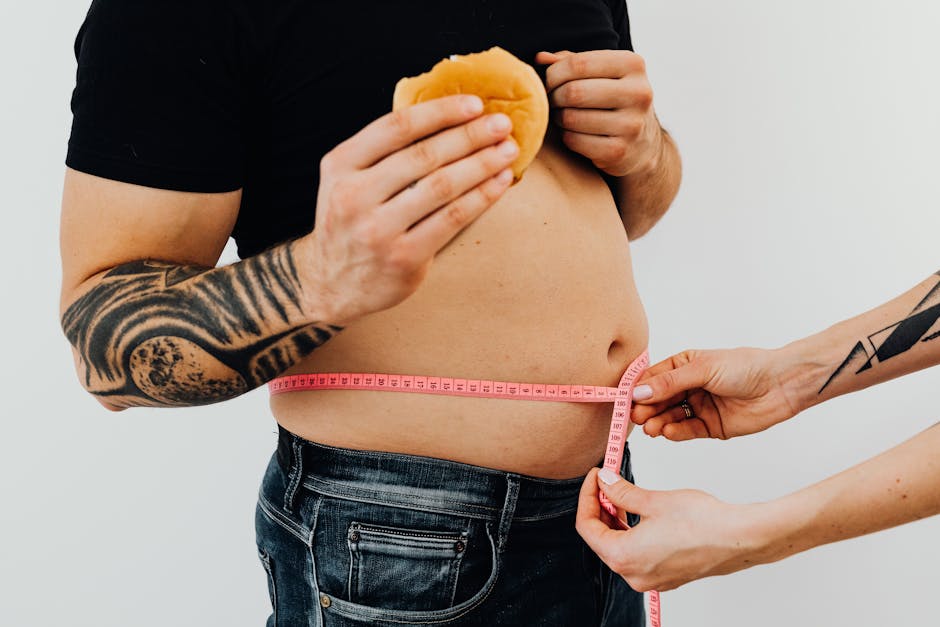Understanding Food Portion Sizes for Effective Weight Loss
Embarking on a weight loss journey can be both exciting and overwhelming. One crucial aspect often overlooked is understanding food portion sizes. Mastering this skill can significantly enhance your weight loss efforts without feeling deprived. Let’s dive in! 🏊♀️
Table of Contents
1. Introduction
2. What Are Portion Sizes? 🍽️
3. The Importance of Portion Control
4. Tips for Managing Portion Sizes
5. Common Portion Size Mistakes
6. Conclusion
7. FAQs
What Are Portion Sizes? 🍽️
Portion size refers to the amount of food you choose to eat at any one time—whether in a restaurant, from a package, or at home. It’s different from a serving size, which is a standardized amount provided on nutrition labels. Understanding this distinction is key to managing your diet effectively.
The Importance of Portion Control
Portion control is essential in achieving and maintaining a healthy weight. By being mindful of how much you eat, you can consume fewer calories, leading to weight loss. It also helps you enjoy your favorite foods without overindulging, promoting balance and sustainability in your diet.
Tips for Managing Portion Sizes
Here are some practical tips to help you manage portion sizes effectively:
1. Use Smaller Plates and Bowls 🍽️
It might sound simple, but using smaller dinnerware can trick your brain into feeling satisfied with less food. When your plate looks fuller, you’re more likely to feel full. Try it out and see how it works for you!
2. Measure Your Food 📏
Especially at the beginning, measuring your food can be enlightening. Use measuring cups or a food scale to understand what a serving size looks like. Over time, you’ll become more adept at estimating portions visually.
3. Listen to Your Body 🤔
Mindful eating is powerful. Pay attention to hunger cues and stop eating when you feel satisfied, not stuffed. This practice can take some time to perfect, so be patient with yourself.
4. Avoid Eating Straight from the Package 🚫
It’s easy to lose track of how much you’re eating when snacking directly from the bag. Portion out a serving size into a bowl to avoid mindless munching.
Common Portion Size Mistakes
Even the best of us can make mistakes when it comes to portion control. Here are a few common pitfalls:
1. Overestimating Healthy Foods 🥑
Just because a food is healthy doesn’t mean you can eat unlimited amounts. Nuts, avocados, and whole grains are nutritious but calorie-dense, so watch those portions!
2. Restaurant Portions 🍝
Restaurant servings are often much larger than necessary. Consider sharing a dish or asking for a half portion. Alternatively, box half of your meal for later before you start eating.
3. Skipping Meals 🚫
Skipping meals can lead to overeating later in the day. Try to maintain regular meal times to keep hunger levels in check and avoid overindulging.
Conclusion
Understanding and managing portion sizes is a pivotal part of successful weight loss. By implementing these strategies, you can enjoy a variety of foods while still reaching your health goals. Remember, consistency is key, and small changes can lead to big results over time.
FAQs
1. How can I control portion sizes when eating out?
Try sharing a dish, ordering a half portion, or boxing up half of your meal before you start eating to avoid overconsumption.
2. Why do I need to measure food portions?
Measuring food helps you understand what a proper serving size looks like, which can prevent overeating and support weight loss.
3. Can I eat more if I’m eating healthy foods?
Even healthy foods can be high in calories. It’s important to watch portions to ensure you’re not consuming more calories than needed.
4. What if I feel hungry after eating a portioned meal?
Check if you’ve consumed enough fiber and protein, which keep you full longer. Drink water and wait a bit to see if the hunger subsides.
5. How does portion size affect my weight loss goals?
Proper portion sizes ensure you’re not consuming excess calories, which is crucial for weight loss. It helps create a calorie deficit needed for shedding pounds.
We hope these insights help you on your weight loss journey! Remember, it’s all about balance and making informed choices. Happy eating! 😊













